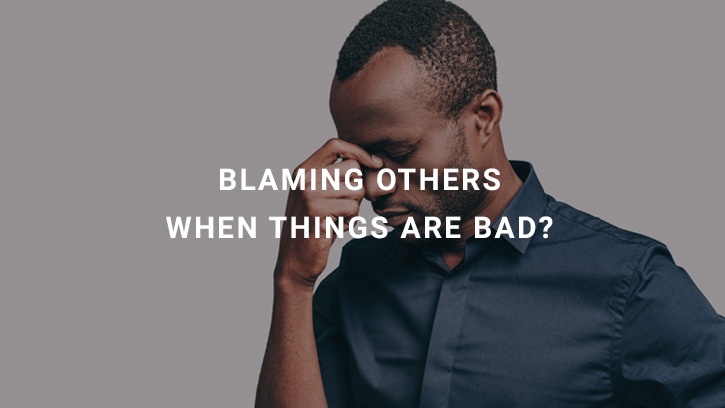Think back to the last great thing that happened in your business. Remember all the good work you put into making it happen, and smart decisions you made that led to the triumph.
Now, reach into your memory to find a time when the new project or expansion didn’t work out. What was the reason? Without knowing the specifics, I’m guessing you can blame industry news, dishonest competitors, or maybe even the economy as a whole.
View all of the posts in our Cognitive Biases in marketing series.
Go back to those thoughts and you’ll notice something interesting: you give yourself credit for the wins, but probably don’t blame yourself for the losses.
In psychology, this is called self-serving bias. It essentially means that when good things happen we think it’s a result of our own effort or qualities. When we don’t get an outcome we want, though, we tend to attribute that to external factors.
Adam Czarneki discusses Snowflakes and Zombies (biases) in this short video.
Big hat-tip to Vince Fowler for pointing me to Adam.
Adam's examples are mind-blowing, but here's an example from the world of web design and online marketing (and a pretty common one at that). When a client comes up with some engaging content, shoots to the top of Google search rankings, and starts generating lots of inbound leads, they are pleased to see that the world has finally discovered how talented and knowledgeable they are.
When they try to do the same thing again, but get lacklustre results, the blame goes to bad business conditions, an overseas company, or changes in search engine algorithms.
I’ve done this. We all have. It feels good to win, and when we do it feels pretty obvious that our own hard work, determination, and positive qualities have led us to overcome.
When things don’t work out, none of us are eager to blame ourselves. While it’s possible we could have worked harder, prepared more carefully, or been more innovative, that’s not where our minds immediately take us.
This isn’t to say that the achievements that have come to you in your life were all accidents, of course, or that bad luck doesn’t play a part in your setbacks. The truth, as always, is a little murkier.
Your talent and determination help you succeed, but almost every accomplishment requires a touch of good fortune. Likewise, you could come up short because of external factors, but it’s also fair to question your own efforts and abilities.
It’s one thing to know about self-serving bias, and another to actually get past it. Luckily, I’ve got a couple of tips that should help you evaluate yourself a bit more fairly…
Don’t Give Yourself All the Credit or Blame for Campaign Failures
There are going to be decisions you make in your professional life that pan out, and more than a few that won’t. That’s particularly true when it comes to web marketing, a field where we always have to move forward on guesses, hunches, and estimations.
Regardless of whether your inclinations turn into profitable strategies or not, though, resist the urge to assign credit and blame with the easiest explanations.

Be willing to explore your role in what happened, and to see how external variables might have influenced the outcome. Chances are, you aren’t going to be completely responsible for either.
Examine and Know Your Strengths and Weaknesses
We all have things we do well, and skills or talents we struggle with. There’s no shame in recognizing there are some things you just don’t naturally take to, or evaluations that require a bit of outside input and assistance.
It’s only through understanding our own strengths and weaknesses that we can overcome them, though. You have to know which tasks to delegate to others, which parts of your knowledge base are lacking, and how you can best contribute to your own success.
When you have a clear and accurate picture of where you fit into the picture, it gets easier to overcome self-serving bias because you can more easily understand your role and all that happens in your business.
Take the Time to Evaluate Outcomes After the Fact
If you really want to be fair with yourself, and to learn about your strengths and weaknesses, you have to get in the habit of evaluating your decisions and campaigns. You need to dig into the activities in numbers – after the fact – so you don’t just see the results, but also the process that led you to them.

It can seem unnecessary to figure out why something worked, and painful to dissect a losing campaign. But, going through this process of evaluation and discovery isn’t just critical to getting smarter; it’s also a great way to put a finger on your own habits and tendencies.
Self-serving bias is a natural human phenomenon.
It’s a way for us to hold onto a positive self-image and stay motivated to move forward even when we make decisions that don’t work out as we had expected.
In other words, it’s not unhealthy to believe in yourself when things are going well and blame the world when they aren't.
But, holding onto a skewed perspective can be harmful whether you're looking back on your successes or your failures. So, look for areas of your business where a self-serving bias might be affecting your decisions and take a balanced view whenever you can.
Learn how we apply behavioural insights into lead conversion optimization using HubSpot Software.




